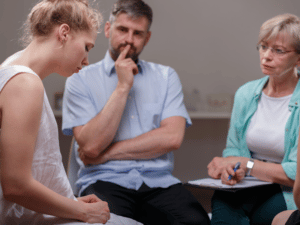It can be hard to maintain your sobriety in college. Often colleges are centers for alcohol and sometimes drugs. For many younger students, experimenting with drugs and other substances is considered a rite of passage. This can lead to an uninhibited atmosphere where it is very easy to get ahold of not only alcohol but other substances like Adderall. This can make it very hard for someone who is trying to abstain from substances to maintain their road to recovery.
Is Going to College After Rehab Hard?
Either because of this practice or for other reasons many students drop out. Some people need extra help to pay for it and/or support when returning to their university. It can be tough to recommit or commit for the first time for such a big and stressful task. However, for many people, college is a necessity to get where they want in life. You can be successful in college. You just need the right tools.
Are Scholarships Available to People with Addiction Disorders?
Many colleges and organizations offer special scholarships based on student needs. There are several scholarships available for students who are facing addiction disorder(s), other mental health disorders, and/or both. It is important to look outside of the university’s scholarship offerings as well. Many people with co-occurring disorders can get additional help from scholarships geared towards people who have other mental health disorders besides addiction.
What are Co-occurring Disorders?
A co-occurring disorder, also known as a dual diagnosis, is when two or more mental disorders are present in the same person at the same time. One of these mental disorders has to be an addiction disorder for the group of conditions to be considered co-occurring. Some examples of mental disorders that might occur with a substance abuse disorder are:
Will the Military Pay for My College if I Have PTSD?
If you served in the United States military you might be eligible for scholarships geared towards veterans. You might also get special consideration from scholarships for other mental health disorders if you have those disorders as well and you have served. The G.I Bill will often pay for a veteran’s university education, but scholarships can help you pay for living expenses and books.
Are There Special Scholarships for LGBTQ People Living with Addiction?
There are also scholarships for people who have addictions and are part of the LGBT community, especially members of the LGBTQ community who come from a disadvantaged background.
What do Scholarships Cover?
There are many scholarships that do not only cover your tuition. There are some out there that assist with books and living expenses. Many colleges provide both need-based and merit-based scholarships to students. It is important to look outside of your school’s offering for scholarships. Your student service’s center might not know about all of the available scholarships and grants so it is important to look online and in the below links.
What are Education Grants?
Grants are very similar to scholarships. They do not have to be repaid by the student. Grants are usually “need-based”, meaning that they put people in financial need a priority. Scholarships are “merit-based”. That means that even if you fall above the income line to receive a grant you can still finance yourself with several scholarships. One of the most popular places to get a grant is the government, including federal and state governments.
Can My College Health Center Help with my Addiction?
Many colleges offer free psychiatric services to students. If your campus does not offer psychiatric services, they may offer physical health care clinics. Some healthcare clinics might be able to prescribe your psychiatric medication if you have a dual diagnosis and you cannot reach your prescriber or you are between prescribers. These clinics might have suggestions on where to find therapists in your area and/or help you find a local SMART Recovery meeting.
What is SMART Recovery?
SMART Recovery is an alternative to the traditional 12-step program. SMART Recovery uses scientific methods to help people continue to modify their behavior and find healthier ways to deal with their emotions. This helps people use healthy coping methods instead of relapsing. SMART Recovery’s four-point program is:
- Building and maintaining the motivation to change
- Coping with urges to use
- Managing thoughts, feelings, and behaviors in an effective way without addictive behaviors
- Living a balanced, positive, healthy life
Apps That Can Help With Addiction Recovery
Besides counseling and Smart Recovery, there are many smartphone apps that can help you maintain your sobriety.
- Sober Time
Sober time tracks your days that you have spent alcohol-free. There is an online support community in the app. The app also shows motivational messages.
- Coach.me
Coach.me, previously known as Lift, offers personal coaching. The self-coaching from the community itself is free. However, there are professional personal coaches available. When you download the Coach.me app you set personal goals which can include everything from mindfulness reminders to good posture reminders. You can check in every day you are sober and mark that task as complete.
- NOMO
NOMO is based on the idea that it is necessary to be accountable to someone besides yourself when it comes to your sobriety. You select someone that you know to be your contact. Every day that you are sober you contact them. There is a clock that you start when you start the app. Every time you abuse alcohol or other substances the clock starts over and your contact is notified. The NOMO app also provides distraction exercises that you can use to take your mind away from abusing substances when the urge to use substances arises.
- Sober Grid
This is another app for people with alcohol addiction. Sober Grid shows other Sober Grid members around you who are willing to connect to offer or receive support.
- rTribe
rTribe allows you to create an anonymous profile and connect with other rTribe members. You can reach out to others for support or give support, track your days without using, and it can help you pinpoint the times of days when you are most tempted to abuse substances.
What are Sober Living Residences in College?
In many colleges sober living residences are available. In these residences, there are no drugs or alcohol allowed. If you have a roommate who uses substances, especially if they keep them in your room(s), it can be very tempting to abuse them. If your college does not offer sober living residences, you can talk to student life and try to find a roommate with needs similar to your own.
Activities in College That Can Help with Your Sobriety
Sober actives like soccer, ultimate frisbee, painting, and volunteering are good ways to keep yourself busy on the weekends and during other times out of class. Not only are sports, creative arts, and volunteering good for you, you can make new friends. Yoga and meditation classes might be especially helpful. Many people find mindfulness practices very helpful in their day to day lives. It can be especially helpful in college. Yoga teachers are usually well educated on which asanas help which problems. Speaking with your teacher, even if you do not want them to know about your addiction, and asking for a stress relief focused session or a meditative session could help.
Maintain a Job While in College
Jobs are a wonderful way to maintain your drug and/or alcohol abstinence during college. It can feel hard not to give in to the peer pressure to go to a party where you know you will relapse. If you have a job you can simply excuse yourself and pick up an extra shift.
Healthy Coping Skills are Important to Maintain after Rehabilitation
It is important to continue to practice healthy coping skills after rehab, especially in college. Many colleges have a big binge-drinking and experimentation culture. It is also one of the keys to certain professions like medicine, engineering, social work, and more. For many people, college is necessary for them to fulfill their career dreams.
College is Possible
Many people find with a combination of these resources they are able to successfully complete college. Addiction recovery can be challenging. It is a life long road and it is not always easy. However, now that you have been through a clinical rehabilitation program you have acquired many skills and techniques that will help you in the future. College is just the second step to getting your life on track. The first step was when you set yourself on your road to recovery.
If you have a substance abuse problem and you are ready to start your recovery, please contact us or call us at (866) 511-2458.
Author
-

President, CEO & Founder at Northbound Treatment Network
Paul Alexander is the CEO, President & Founder of Northbound Treatment Network in Newport Beach, California. He believes wholeheartedly in transformational leadership, organizational health and effective, fully integrated substance use disorder and mental health treatment. With over 27 years of experience in behavioral healthcare, Paul has extensive knowledge of “in vivo” treatment modalities, clinical development, operations, strategy, marketing and financial planning. He has been widely recognized for his development of collegiate-based residential treatment programs for students in recovery and authored a research study at The University of California confirming this modality’s effectiveness.
Paul’s comprehensive professional experience, willingness to innovate, and emphasis on organizational health are vital factors in Northbound’s continued success. Paul received his Certified Addiction Treatment Specialist training at Saddleback College in Mission Viejo, CA, and was awarded Outstanding Alumni Service Award in 2002. Paul holds a Bachelor of Arts degree in Criminology, Law and Society, Summa Cum Laude, from University of California, Irvine, and a Juris Doctorate degree from Loyola Law School of Los Angeles. Paul currently serves on The National Association of Addiction Treatment Providers (NAATP) board. In addition, he serves on The Family Recovery Foundation board and The CarePossible board in Orange County; both organizations are committed to raising funds for family recovery and treatment for former military personnel. Paul is in recovery himself and lives in Orange County with his wife Silvana and his two young sons, Noah and Dean.










